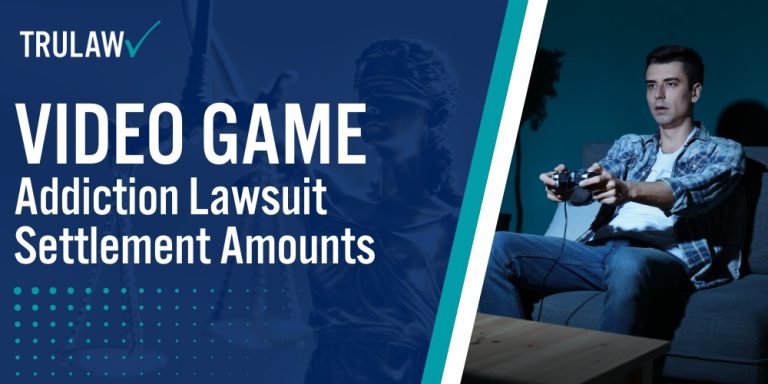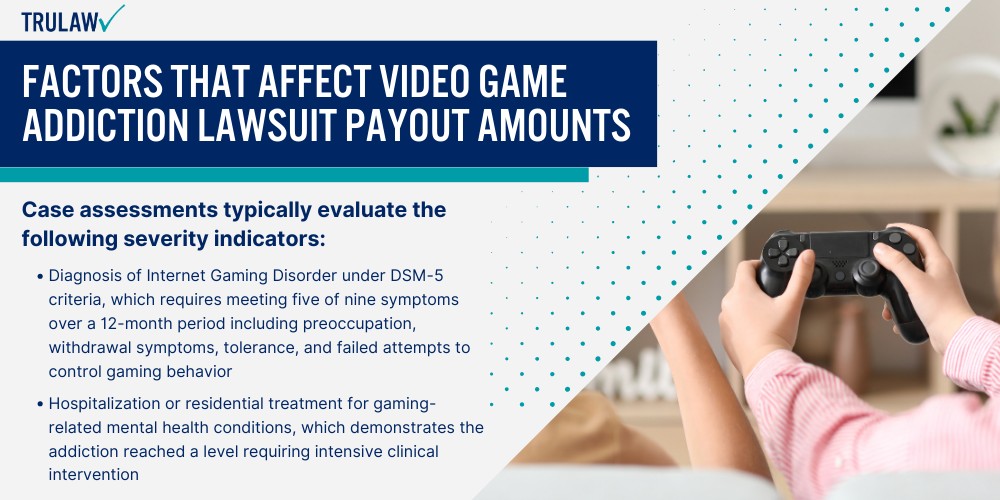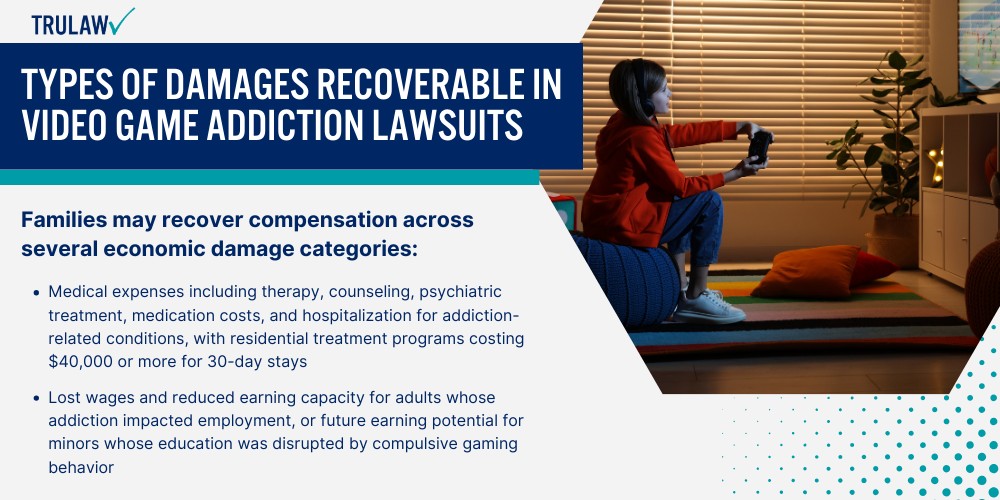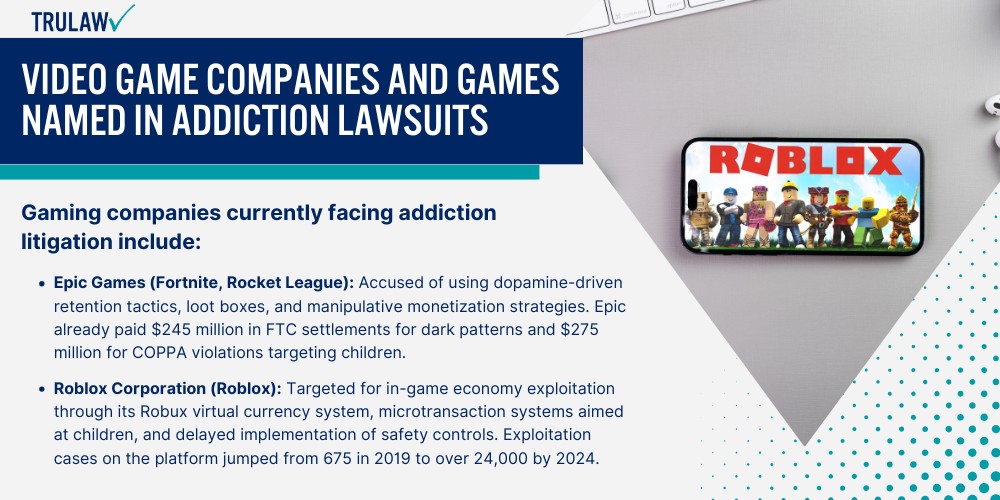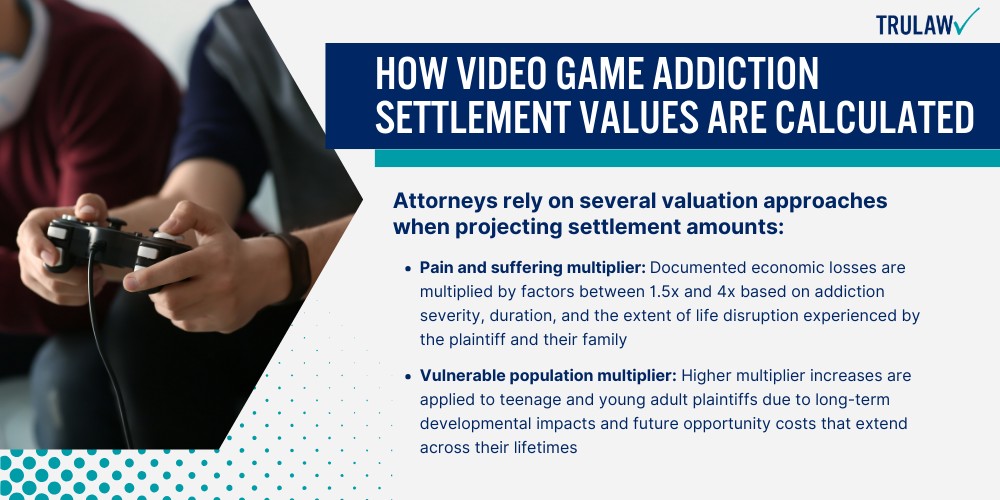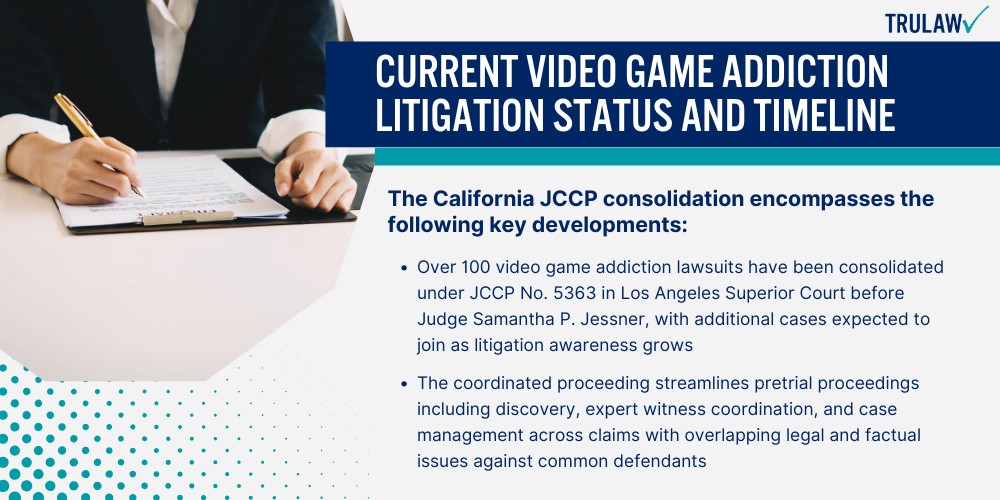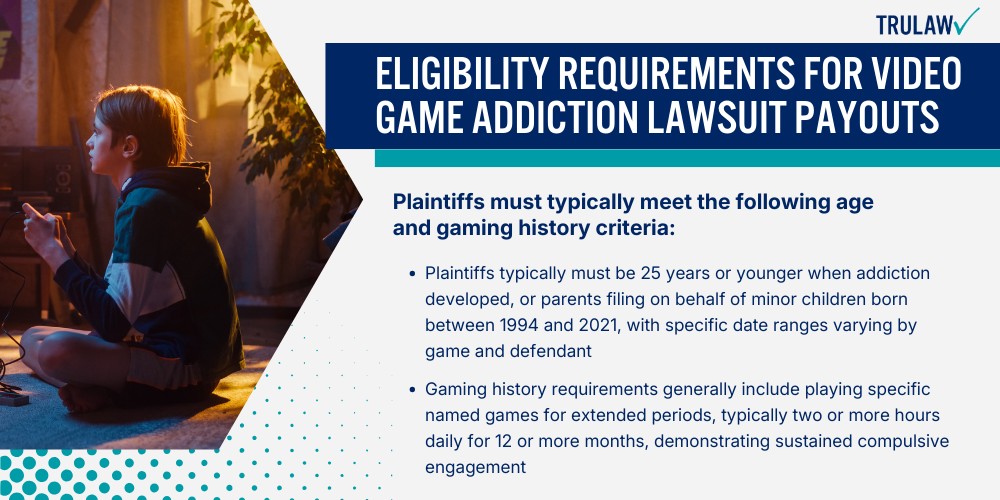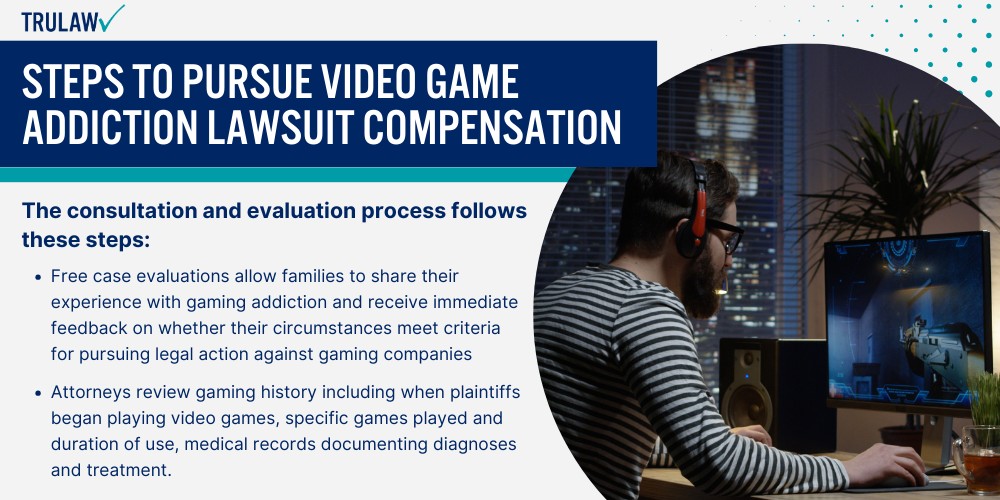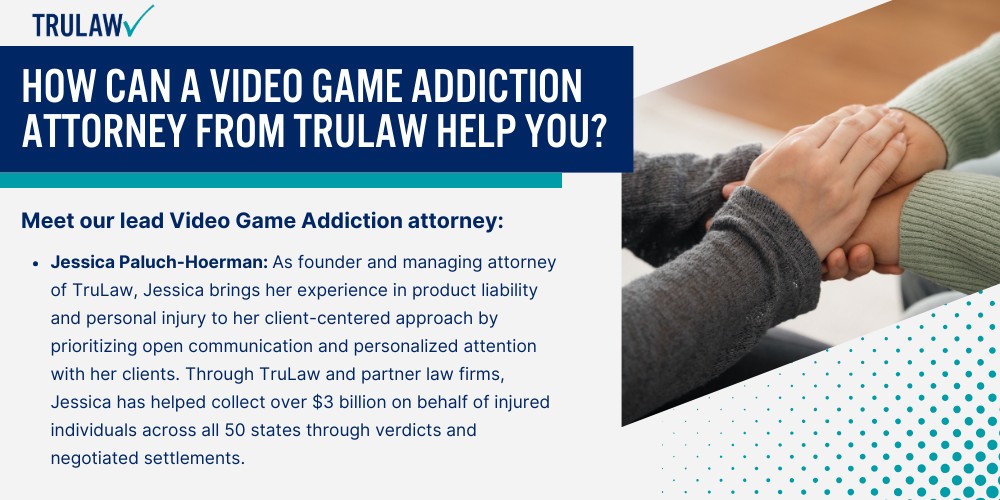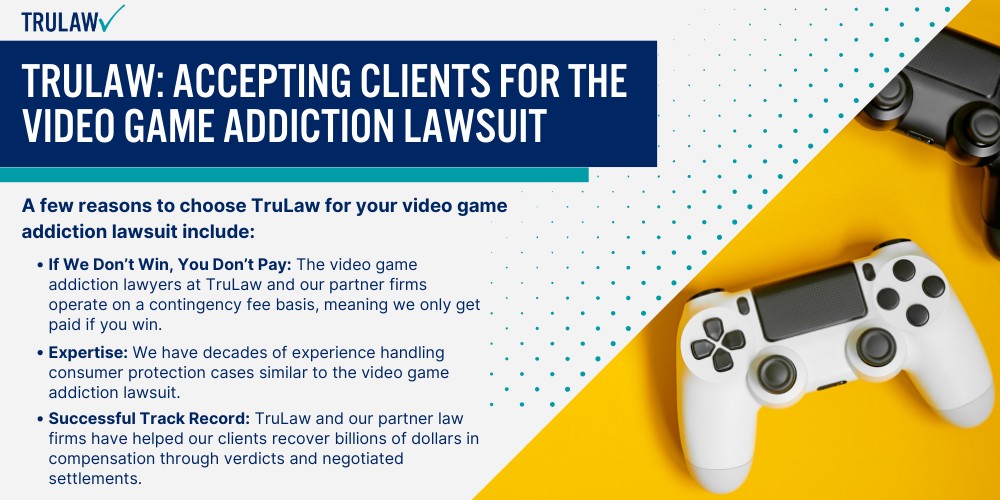Legal experts have developed tiered projections for video game addiction lawsuit settlement amounts based on documented harm severity and precedent from comparable addiction litigation.
While courts have not yet issued verdicts or approved global settlements, attorneys draw from established frameworks in product liability and behavioral addiction claims to estimate potential compensation.
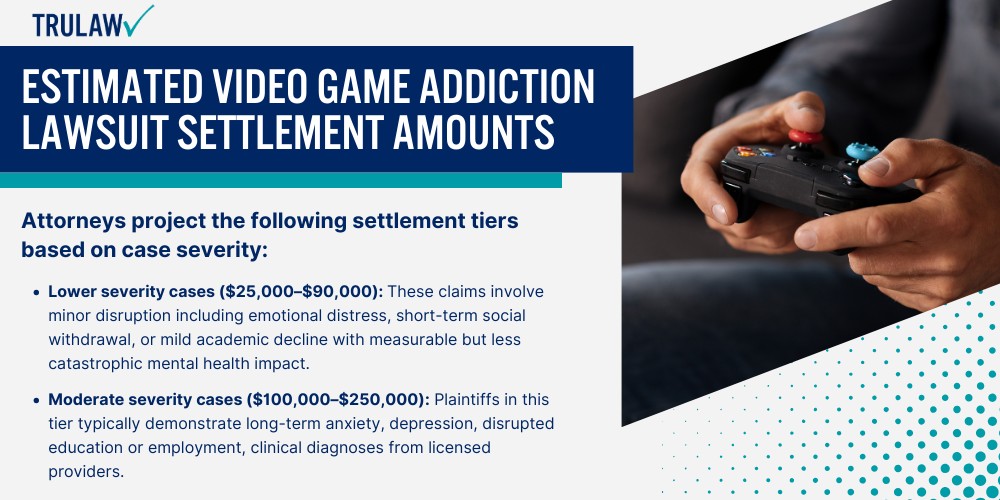
Research indicates that the worldwide prevalence of gaming disorder is approximately 3.05%, supporting the severity-based classification approach used in current litigation.
These projections help families gauge potential recovery while recognizing that individual results depend on specific circumstances.
Settlement Projections by Case Severity
Attorneys evaluating video game addiction claims categorize cases into tiers based on documented addiction severity and the resulting harm experienced by plaintiffs.
This tiered approach helps families anticipate potential compensation ranges while accounting for the wide variation in individual circumstances.
Attorneys project the following settlement tiers based on case severity:
- Lower severity cases ($25,000–$90,000): These claims involve minor disruption including emotional distress, short-term social withdrawal, or mild academic decline with measurable but less catastrophic mental health impact. Plaintiffs in this tier may have limited medical documentation or shorter addiction durations.
- Moderate severity cases ($100,000–$250,000): Plaintiffs in this tier typically demonstrate long-term anxiety, depression, disrupted education or employment, clinical diagnoses from licensed providers, and documented treatment history spanning months or years of therapeutic intervention.
- High severity cases ($250,000–$350,000+): Cases involving suicide attempts, psychiatric hospitalization, permanent disability, or total life disruption requiring extensive ongoing care fall within this range. These claims feature substantial medical records and clear causation evidence.
- Extreme cases ($500,000–$1 million+): The highest projected settlement amounts apply to claims with life-altering consequences, extensive documented harm, multiple hospitalizations, and long-term developmental impacts in minors whose futures have been permanently affected.
Legal experts derive these projections from comparable addiction litigation including social media addiction lawsuits and product liability cases, adapting established valuation methodologies to address the unique characteristics of gaming addiction claims.
Please be advised that any projected or estimated settlement amounts mentioned on this page are general estimations and are not guaranteed.
These figures are based on opinions of legal experts based on the nature of the injuries and estimated costs of damages.
They are meant to provide a general idea of what settlement ranges could look like and should not be taken as definitive expectations for your case.
Contact TruLaw using the chat on this page to receive an instant case evaluation.
Why No Standardized Settlement Amounts Exist Yet
Video game addiction litigation remains in its early stages, with over 100 cases consolidated in California under JCCP No. 5363 but no verdicts or global settlements reached as of late 2025.
Several factors explain why standardized settlement amounts have not yet emerged in video game addiction cases within this developing area of law.
Several factors explain why standardized settlement precedents have not yet emerged:
- Video game addiction litigation is proceeding through pretrial stages with discovery ongoing and no bellwether trials yet scheduled to test case theories before juries. These initial trials will establish how courts view gaming company liability.
- The Epic Games FTC settlement of $245 million for dark patterns provides regulatory precedent but addressed billing practices rather than addiction claims specifically. Epic Games paid $520 million total in FTC settlements, including $275 million for COPPA violations.
- Individual case values will depend heavily on documented evidence, defendant conduct, and jury perceptions of gaming company culpability for designing products that intentionally exploit psychological vulnerabilities in young players.
- A federal MDL hearing on December 10th, 2025 denied the consolidation of federal cases involving Fortnite, Minecraft, and Roblox.
Legal experts anticipate clearer settlement patterns emerging as cases advance through discovery and initial trials establish precedent for valuing gaming addiction claims.
If you or someone you love has suffered severe mental health problems or other harm after using video games, TruLaw can help you explore your legal options.
Contact us using the chat on this page to receive an instant case evaluation and determine whether you qualify to join others in filing a video game addiction lawsuit today.
